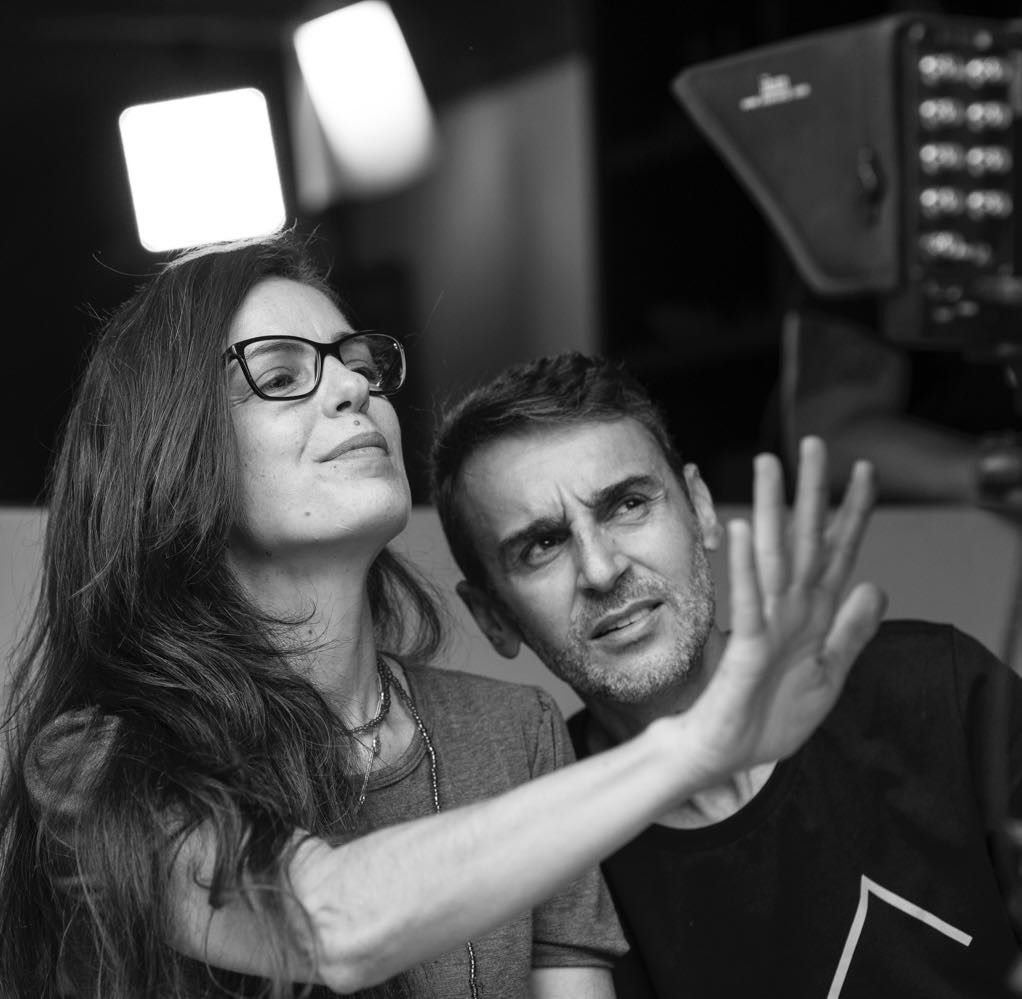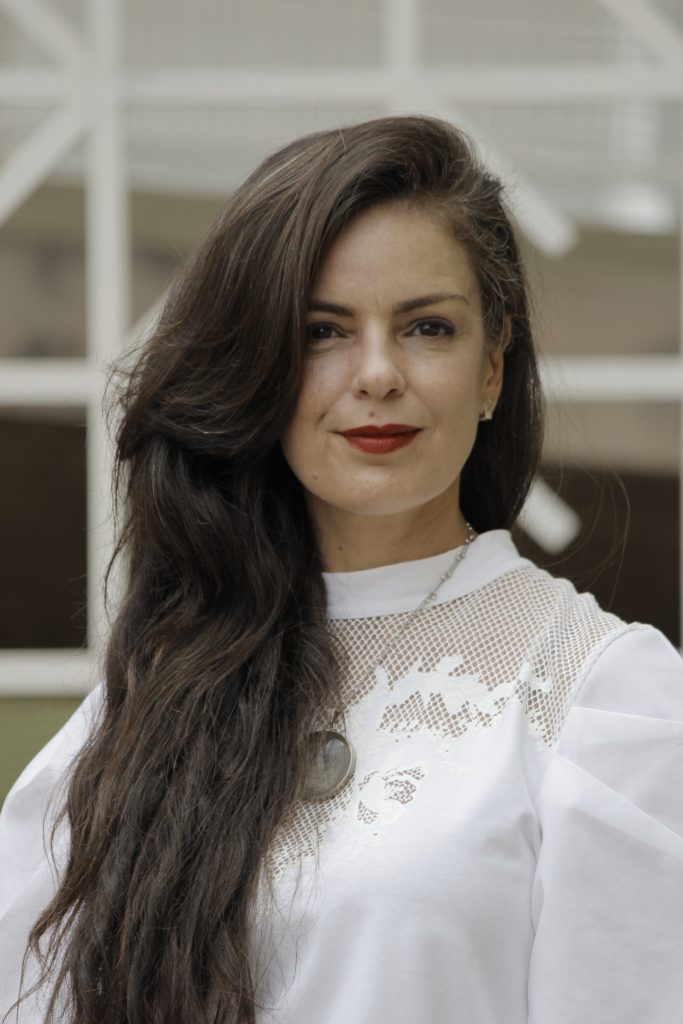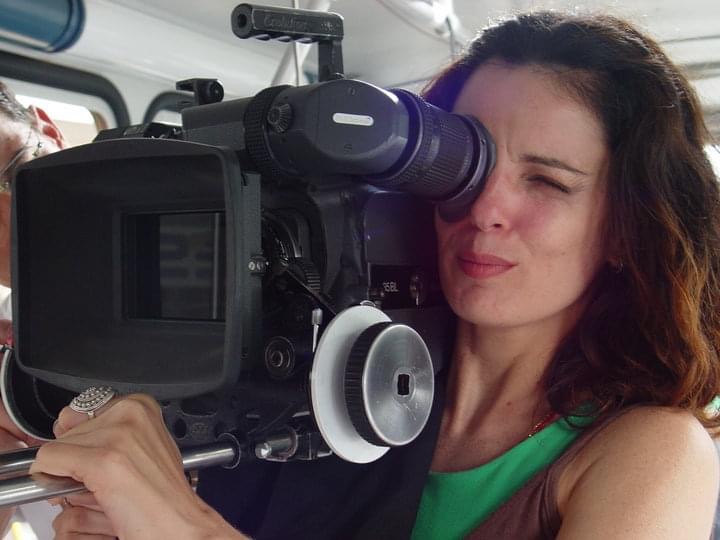
-Who is Catarina Accioly?
I am a multidisciplinary artist who started out as an actress and specialised in screenwriting, directing and producing. My focus is on content that addresses challenging stories, sensitive issues and inspiring characters, both in documentary and fiction.
I believe that art has the power to impact and transform. If one day I am no longer here, the works I have created will say a lot about what I believe in. I am an artist who seeks, through poetic art, to question and stimulate a more just and equal world. Stories that leave good seeds motivate me.
My work explores the connection between the individual and the collective, using art to address social and emotional issues. Each project is an opportunity to investigate new languages, always aiming to touch the audience and generate a positive impact.

-Do you remember the exact moment when you fell in love with cinema?
My relationship with cinema developed gradually through a series of coincidences: a family that liked going to the movies, access to good films when I was young and living in Brasilia, the capital of Brazil, where I still live today. In the 1980s, there were many movie theaters showing ‘art films’. It was my favourite thing to do. I fell in love with cinema before I fell in love with acting. I am a spectator and a film buff.
But when I was almost 30, after having acted in several films, studied screenwriting and logically identified the similarities and connections with my theatre training, I was overcome by the desire to tell my own stories. I dedicated myself to creating, writing and directing with great determination. When I realised this in my first short film as a director in 2005, I identified the overwhelming desire for audiovisual work as my profession. And here I am today, 20 years after my first short film as a director.
-Tell us about your project ‘Wheels of a Giant’.
I had a spark of curiosity to dive into the life of Hugo Rodas, the protagonist of the documentary Wheels of a Giant, since I met him at the age of 19 at the University of Brasília as my professor. His last name ‘Rodas’ means ‘Wheels’. He was my theatre director for over 10 years in two theatre companies. He became my friend. He was a very original artist and a unique human being. When he was 79, after almost 30 years of daily friendship, with an established career in cinema, I started filming him in the midst of his theatrical activities. Months later, he discovered he had an illness. I decided to tell this story. Without knowing, I filmed the last four years of this charismatic man’s life in Brasília, Brazil, following him to Juan Lacaze and Montevideo, Uruguay. And so the documentary came about, with a universal conflict that arose: the imminence of death. The film premiered in Brasília in December 2023 and, since then, has been shown at more than 70 festivals, receiving more than 30 awards, as honourable mentions and other recognitions. This makes us believe in this story of an old soul of the theatre facing death through art and his eccentric relationships.

-Which director inspires you the most?
I would highlight female directors who inspire female directors and screenwriters. I would highlight Sofia Coppola for the personality and skill of her narratives; she is certainly an international reference. In Brazil, Anna Muylaert has a very expressive and important cinematography due to her approach to original stories that carry social importance. She inspires me with how she directs and handles scenes and stories, as well as being a great screenwriter.
-What don’t you like about the world and what would you change?
There is a lack of tolerance, right? The various wars, oppression, the extermination of peoples, supremacy at any level, it’s horrific. I wonder where we will end up with all this. The world is collapsing, thousands of people are dying, nature is screaming, there is war, hunger, oppression, devastation, new technologies are being manipulated for greed, money and power. It’s sad, isn’t it? I would change it to a world with collective ideals so that we don’t all die soon without leaving any possibility of continuity for future generations.
A world of respect for differences and generosity in the deepest sense of both words would be an incredible place to live, don’t you agree?
-How do you imagine cinema in 100 years?
I believe that nothing can replace the immersive experience of cinema. I hope that authorship will be increasingly valued. But these are just wishes. Perhaps I prefer to imagine films that are possible to make. I can’t transport myself to a future where I won’t be. It’s better to think about what I can tell and achieve today, in the present.
-What is your impression of a WILD FILMMAKER?
I consider Wild Filmmaker an excellent opportunity both for film distribution and for promoting filmmakers and their independent, auteur works. I appreciate the opportunity to talk with you and tell you a little about the cinema made in Brazil’s capital city.
